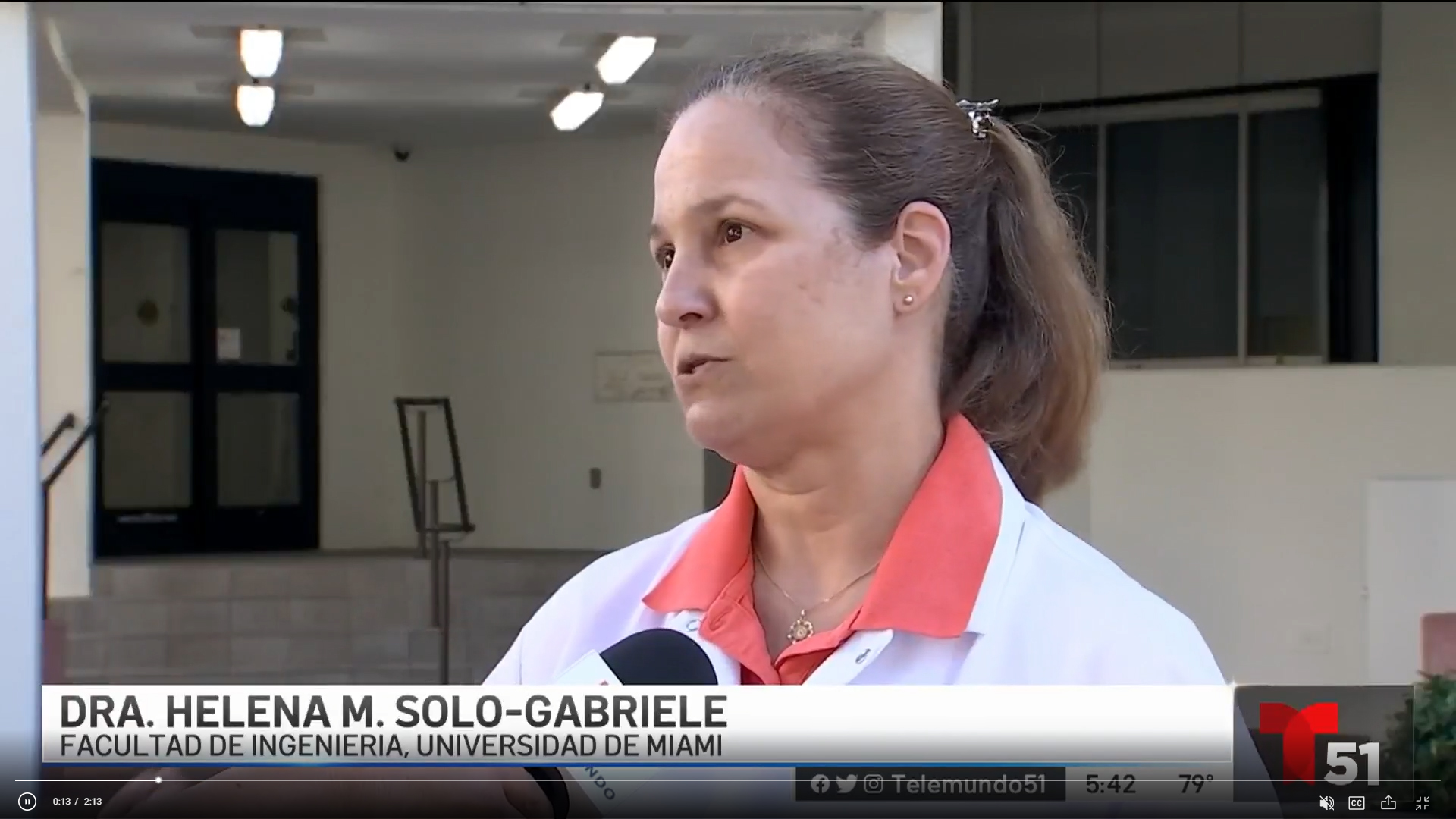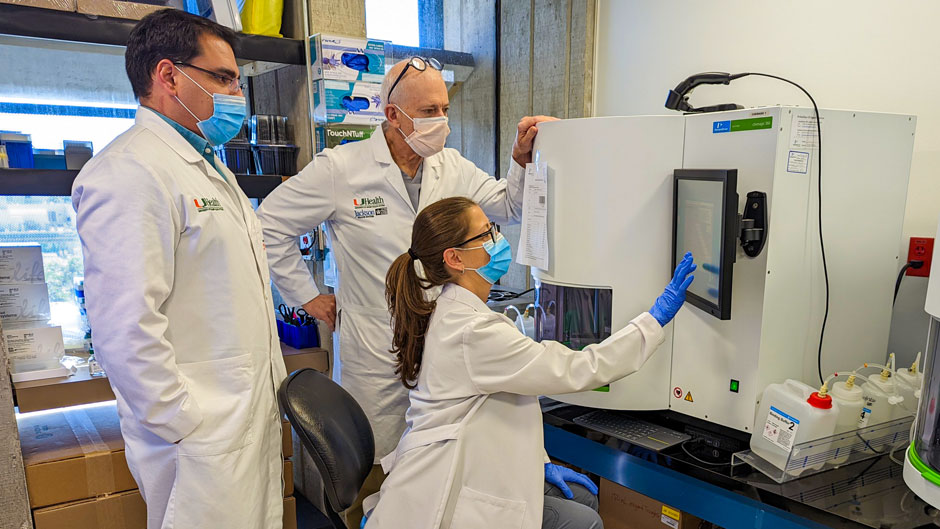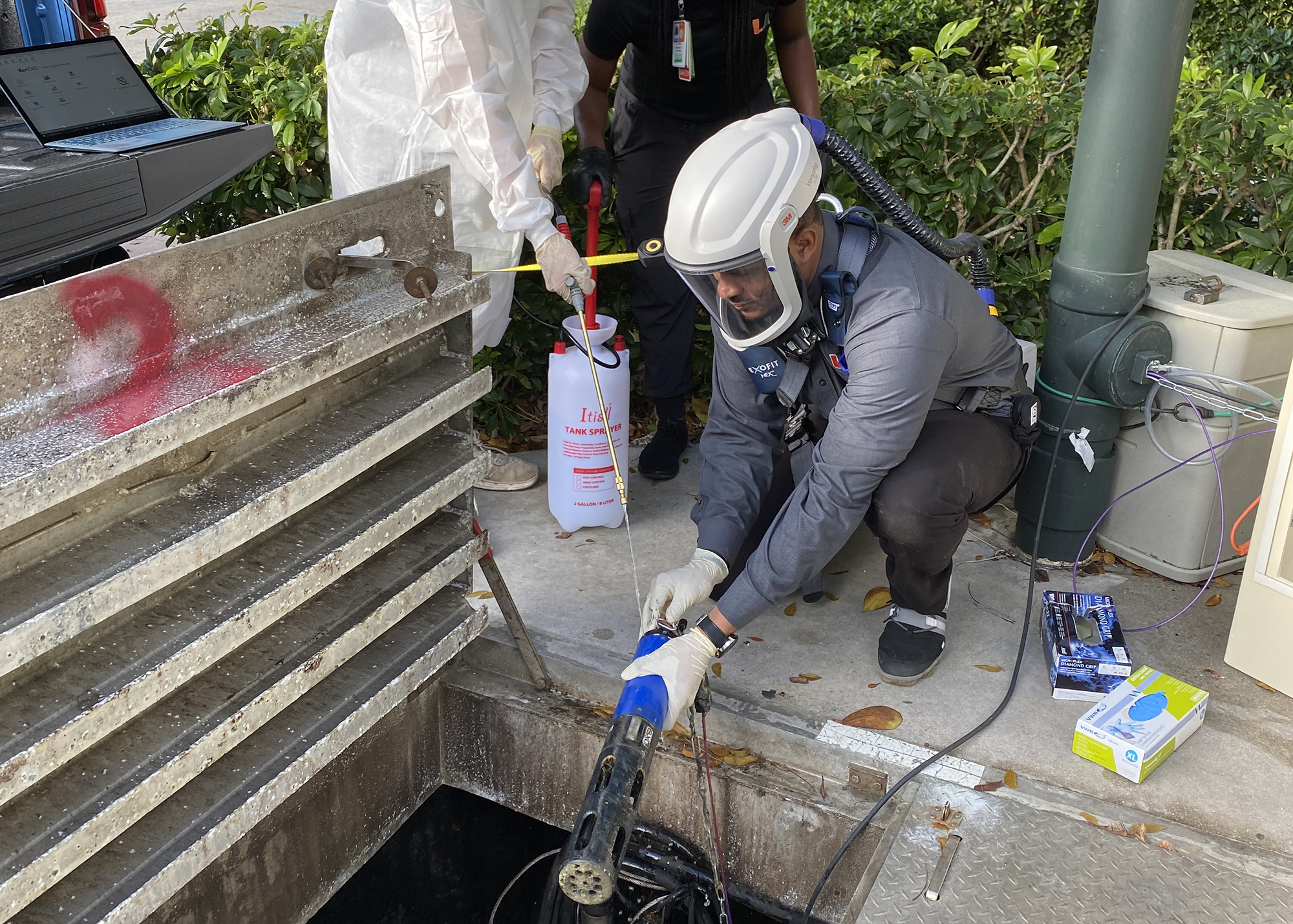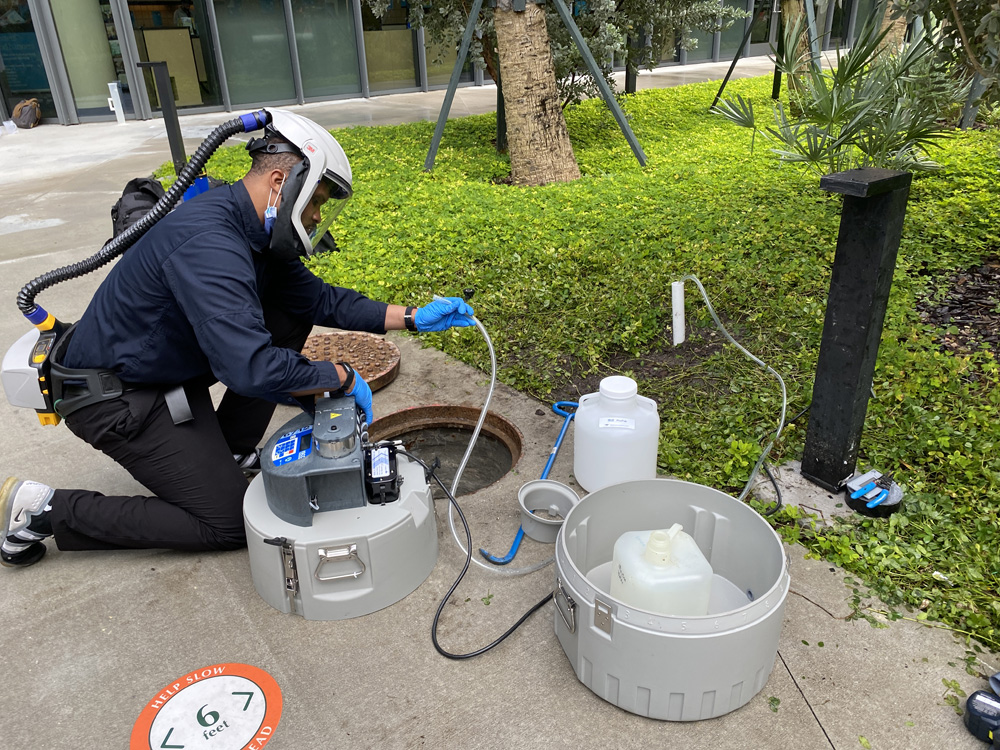As the COVID-19 pandemic enters its second year, scientists are urgently investigating ways to detect signs of the SARS-CoV-2 virus before an outbreak emerges. Now, supported by a multi-institutional grant from the National Institutes of Health (NIH) Rapid Acceleration of Diagnostics (RADx) Program, researchers from Weill Cornell Medicine and the University of Miami will study ways to use wastewater as an early warning and viral mapping system for new genetic variants.
 This $5 million dollar, two-year grant will enable national and international coordination of research teams to determine whether analyzing wastewater for the presence of the genetic material of SARS-CoV-2 can accurately predict the next viral hot-spots, as well as discover new, emerging viruses and pathogens. Using this information, the team aims to create an infectious disease model that can anticipate outbreaks based on wastewater surveillance, human test results, clinical metadata, and local hospitalization data. The investigators will integrate their data with the U.S. Centers for Disease Control and Prevention’s (CDC) efforts to track emerging pathogens.
This $5 million dollar, two-year grant will enable national and international coordination of research teams to determine whether analyzing wastewater for the presence of the genetic material of SARS-CoV-2 can accurately predict the next viral hot-spots, as well as discover new, emerging viruses and pathogens. Using this information, the team aims to create an infectious disease model that can anticipate outbreaks based on wastewater surveillance, human test results, clinical metadata, and local hospitalization data. The investigators will integrate their data with the U.S. Centers for Disease Control and Prevention’s (CDC) efforts to track emerging pathogens.
“Identifying traces of the virus in sewage flowing from buildings and across cities may provide an early warning system, alerting people to get tested and self-isolate sooner than is currently possible,” said principal investigator Dr. Christopher Mason, co-director of the WorldQuant Initiative for Quantitative Prediction and an associate professor of physiology and biophysics at Weill Cornell Medicine.
Recent research on COVID-19 has found that SARS-CoV-2 can be detected in wastewater days or even a week before people show symptoms or test positive for COVID-19. To determine if this genetic material can predict a future outbreak, the teams will collect wastewater samples weekly from 13 University of Miami campus locations, as well as a range of sites across the United States (Charlotte, Racine, New York City, Burlington, Dallas, Los Alamos) and internationally (Kuala Lumpur, Singapore, Seoul, Shanghai, Istanbul, Marseille, Montevideo, Buenos Aires). The broader effort is part of an international consortium founded by Dr. Mason called MetaSUB (the Metagenomics and Metadesign of Subways and Urban Biomes). Dr. Mason and Dr. Ebrahim Afshinnekoo, a fellow in physiology and biophysics at Well Cornell Medicine, co-founded MetaSUB in 2015.
 “We are learning that measuring wastewater is a powerful tool to understand what illnesses are in a community and how humans are contributing to these diseases, not only for COVID-19 but for public health in general because we can use it to monitor many different [pathogenic] organisms,” said principal investigator Dr. Helena Solo-Gabriele, associate dean of research for the College of Engineering and a professor of environmental engineering at the University of Miami.
“We are learning that measuring wastewater is a powerful tool to understand what illnesses are in a community and how humans are contributing to these diseases, not only for COVID-19 but for public health in general because we can use it to monitor many different [pathogenic] organisms,” said principal investigator Dr. Helena Solo-Gabriele, associate dean of research for the College of Engineering and a professor of environmental engineering at the University of Miami.
The Florida-based investigators will continually test their campus for the presence of SARS-CoV-2 using a novel polymerase chain reaction (PCR) method they developed, as well as a new rapid diagnostic method developed by Dr. Mason called loop-mediated isothermal amplification (LAMP). Each wastewater sample will also be sent to Weill Cornell Medicine, where Dr. Mason and his team will use next-generation sequencing technology to look for known SARS-CoV-2 variants like the U.K. (B.1.1.7) or Brazilian strains (P.1), which are a growing public health concern, given their ability to spread more quickly, as well as new variants and other viruses. The Weill Cornell Medicine researchers will compare their data with those from other locations in the United States and the MetaSUB Network.
“With this novel surveillance approach, it may be possible to predict and therefore ward off COVID-19 outbreaks in specific buildings, neighborhoods, and cities,” said Dr. Mason, who is also the WorldQuant Research Scholar, an associate professor of computational genomics in computational biomedicine in the HRH Prince Alwaleed Bin Talal Bin Abdulaziz Al-Saud Institute for Computational Biomedicine and an associate professor of neuroscience in the Feil Family Brain and Mind Research Institute at Weill Cornell Medicine. “We hope the results from our project can help public health leaders around the world improve efforts to halt the spread of COVID-19 with more timely information.”
This project is funded by NIH grant number 1U01DA053941-01. Dr. Christopher Mason is a founder, equity stock owner, and consultant for Biotia, a company focused on fighting infectious disease with AI and genomics while developing the world’s leading microbial sequence database.
SOURCE: News.Weill.Cornell.edu | March 3, 2021







